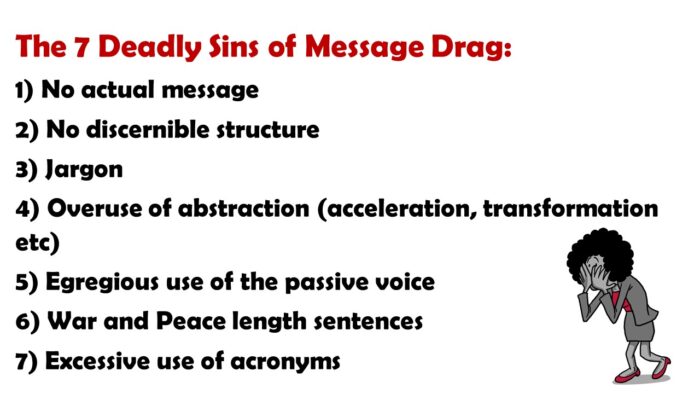
A longer version of this article features in my forthcoming book about how to improve messaging in the Brussels Bubble.
‘The Data Governance Act (DGA) will set up robust mechanisms to facilitate the reuse of certain categories of protected public-sector data, increase trust in data intermediation services and foster data altruism across the EU.”
If you work in Brussels and don’t know what this means, there’s a very good chance you will blame yourself.
And feel stupid.
Particularly if you are just starting your career here.
You need to change that mindset fast, as it’s not your fault and you shouldn’t think this type of writing is to be revered or aspired to.
This is a classic example of a phenomenon that I refer to as ‘message drag’.
Message drag is the cumulative effect of using a lot of bad writing/speaking habits (which I call sins) on your overall message.
It mostly, but not exclusively, pertains to written documents in Brussels and is common across all organisations, not just the EU institutions.
Fittingly, there are seven.
Individually, they weaken your message.
Together, they drag it down into a swamp of opaque meaning and obfuscation. (It’s no coincidence that the old name for Brussels – ‘Bruocsella -’ means marsh dwelling’).
So here are the sins in no particular order:
The 7 Deadly Sins of Message Drag:
1) No actual message
2) No discernible structure
3) Jargon
4) Overuse of abstraction (acceleration, transformation etc)
5) Egregious use of the passive voice
6) War and Peace length sentences
7) Excessive use of acronyms
What would you add or change?
Did you like the blog?
If yes, please consider subscribing and sharing with likeminded colleagues. Updates are free, occasional and practical.
